| On Saturday a week ago, three of our DDP job training students, all on one motorcycle, were involved in an accident on slippery roads. One student, Sary, seemed to be OK and returned to our hostel in Phnom Penh on Saturday night, but Sunday afternoon he collapsed. We took him to the hospital and had a brain scan which showed blood gathering in the brain so we arranged for surgery that night. Sary never regained consciousness, however, and died the following Wednesday and was cremated on Thursday. A busload of our staff and students from the job training program went to Kampot province for the cremation. In Buddhist Khmer culture, another ceremony is held on the seventh day after the death, and for that Sokly, the DDP program manager; Youra, the assistant manager of the Job Training Project; Susan Sporl, our social work advisor; and Charlie Dittmeier, the DDP director, drove to Kampot, to the student's house where the ceremony was held. |
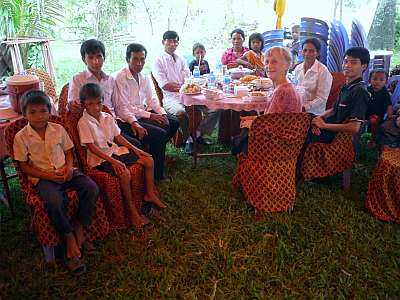 |
We arrived at lunch time and the family served us a meal and sat with us. We arrived several hours ahead of the main group of those attending the ceremony and it gave us time to be with the family and talk to them about their son. There are six children in the family, three of them deaf. Sary was the second oldest. |
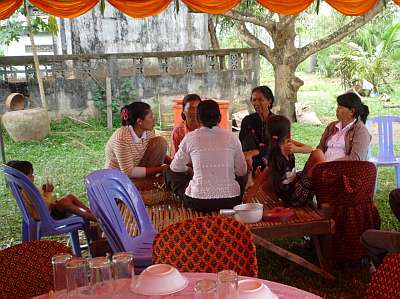 |
In the rural areas, a wedding or funeral is a community event. These women are neighbors who came to assist Sary's mother in all the preparations for the ceremony at her house. They helped to serve the food which was prepared on open fires back behind the house. |
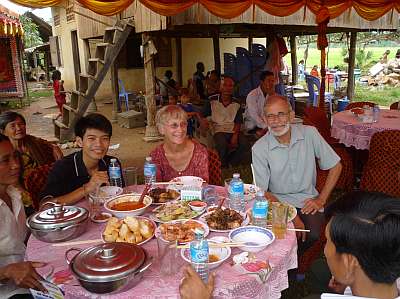 |
Keat Sokly, Susan Sporl, Charlie Dittmeier, and Youra (foreground) with the family after eating lunch. Sokly had to take on an interpreter role to facilitate communications between the family who basically spoke only Khmer and Susan and Charlie who are weak in that language. |
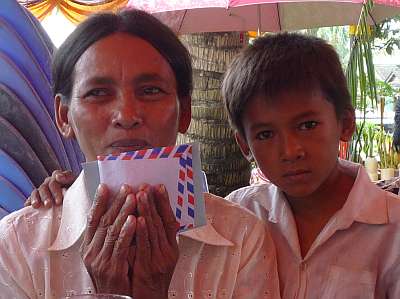 |
Sary's mother and one of his deaf brothers. There is no school for the deaf near the brothers' house so they are not able to get a real education. They have been allowed to sit in at a hearing school but have not been able to advance beyond the second grade. |
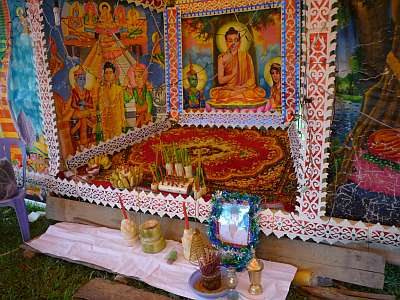 |
Most Buddhist ceremonies are not held in the wats (pagodas) but in the family houses. This setting was obtained from the nearby wat and put up as the backdrop for the ceremony to be held in the evening. As would be expected, there are various traditional symbols represented here. In the foreground, before the picture of Sary, is an oil lamp that must be kept burning from the time of his death to the end of the last ceremony to offer light for guidance of his wandering spirit. |
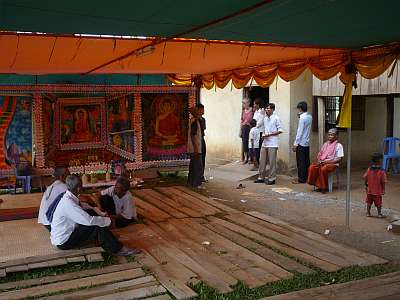 |
Three workers from the wat sit on boards that will later be covered with mats for seating the people who will attend and participate in the funeral ceremony. |
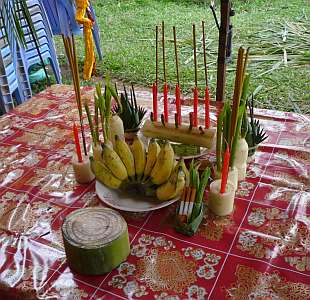 |
A funeral arrangement placed on a table near the entrance to the large tent where the ceremony was held. All the elements are natural, mostly pieces of banana trees, except for the red candles and cigarettes. The numbers of candles, the arrangement, the materials all have symbolic importance. |
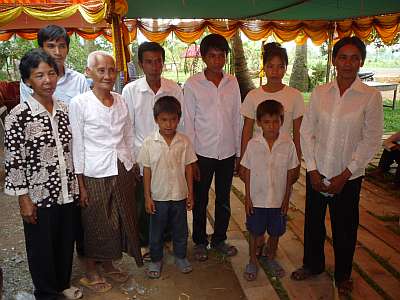 |
The funeral ceremony was supposed to be at 7:00 PM so we prepared to leave the house and go to the hotel where we would stay overnight and then return for the ceremony. Before we left, we gathered the family together for a photo of them together, maybe the first they ever had. |
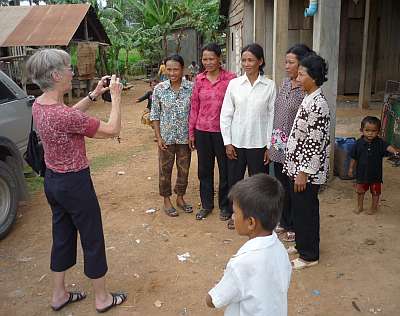 |
Susan Sporl, a Maryknoll Lay Missioner, took a photo of Sary's mother and her sisters. |
|








